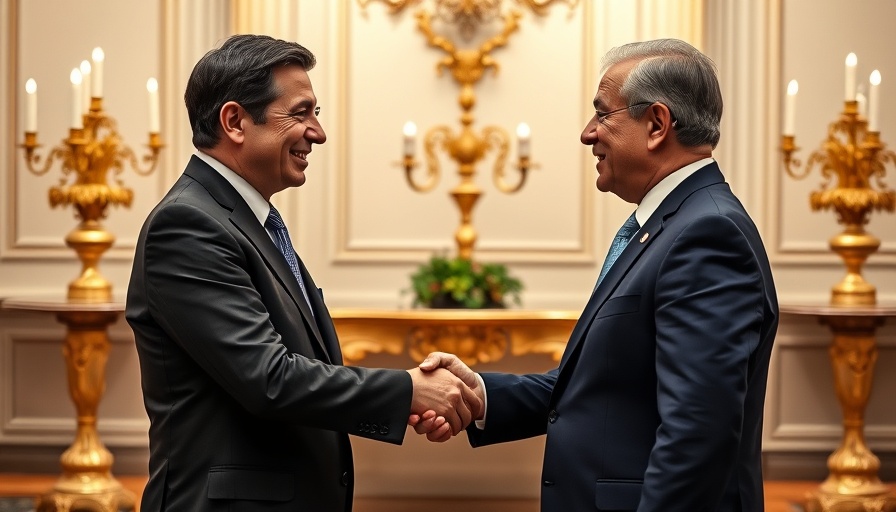
Crafting a New Path for African Diplomacy
As the global landscape shifts with rising nationalism and evolving trade dynamics, Africa finds itself at a crossroads. The abrupt exit of Donald Trump from the G7 Summit highlights the challenges that developing countries, particularly those in Africa, face in an increasingly protectionist world. The introduction of Trump tariffs sharply intensifies existing economic vulnerabilities, threatening to unravel gains made in economic partnerships.
Understanding Trade Challenges: The African Perspective
Trade facilitation is paramount for African nations. With rising costs of capital, many countries grapple with social unrest exacerbated by inflation and high living costs. South Africa's recent moves towards establishing sustainable diplomacy centered on national interest and continental solidarity are critical. Emphasizing partnerships rooted in trade, investment, and societal benefit can create a framework that addresses pressing issues such as unemployment and inequality.
China’s Role: A New Opportunity for Africa
The recent announcement from China regarding duty-free access for 53 African nations presents an unprecedented opportunity to bolster exports and safeguard jobs. As Africa seeks to leverage these advantages, critical components such as trade capacity, product quality support, and digital transformation through technology adoption must be prioritized. This could drive innovation and enhance competitiveness in the global market.
African Continental Free Trade Area: Challenges and Progress
The African Continental Free Trade Area (AFCFTA) has enormous potential, yet current trade volume remains disappointingly low. The challenge lies not in the lack of resources but in the effective implementation of trade facilitation measures, technology transfer, and capacity building. By ensuring fair trade practices and aligning with the United Nations Sustainable Development Goals (SDGs), Africa can build a more equitable trading environment that incorporates the needs of smaller nations and promotes regional integration.
The Role of Technology in Future Diplomacy
In an era dominated by rapid technological advancement—from digital payments to AI-driven analytics—Africa's approach to global diplomacy must embrace these tools. Harnessing technology can enhance transparency, improve efficiency, and open new avenues for growth. As African economies transition, investing in digital infrastructure and tech entrepreneurship will be crucial for long-term sustainability.
Conclusion and Call to Action
For Africa to effectively navigate the tumultuous tides of global trade tensions, it must adopt a multifaceted strategy that emphasizes sustainable partnerships and technological innovation. Executives and decision-makers across the continent should explore avenues for fostering digital transformation in their operations and collaborations. Africa’s future is bright, but it requires concerted efforts to harness available opportunities and navigate challenges. Explore further how your business can engage in sustainable tech partnerships that align with Africa’s diplomatic initiatives.
 Add Row
Add Row  Add
Add 




Write A Comment